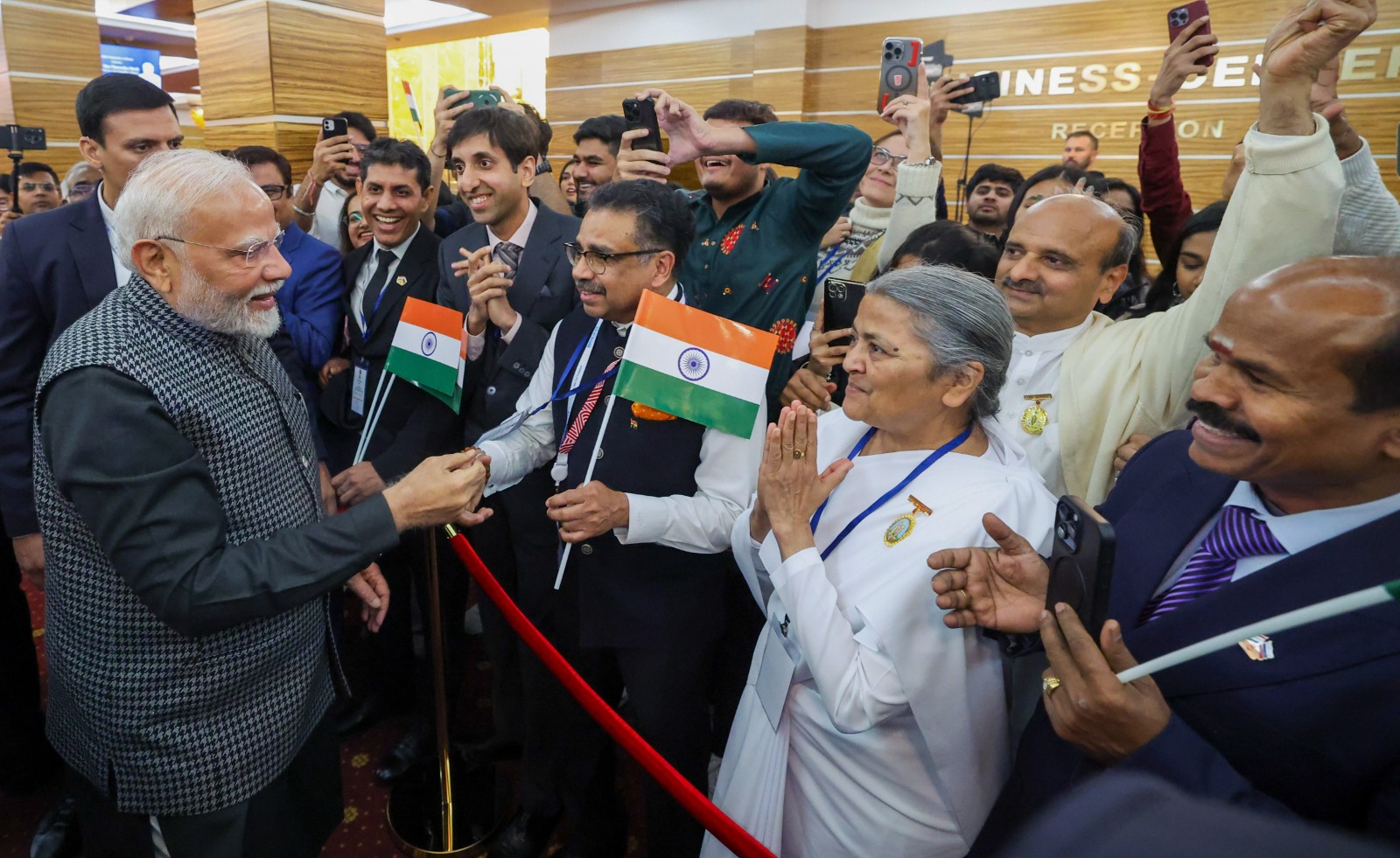Prime Minister Narendra Modi arrived in Kazan to attend the 16th BRICS Summit, where he engaged in bilateral discussions with Russian President Vladimir Putin. This meeting is part of Modi's broader agenda to strengthen ties within the BRICS alliance, which includes major emerging economies like Brazil, Russia, India, China, and South Africa.
Upon his arrival, Modi was welcomed at the Kazan airport by Rustam Minnikhanov, the head of the Republic of Tatarstan. In a statement prior to his departure, the Prime Minister emphasised the importance of BRICS as a platform for dialogue on critical global issues.
He highlighted India's commitment to working on the global developmental agenda, promoting economic cooperation, addressing climate change, and fostering cultural exchanges among BRICS nations.

Modi's meeting with Putin is particularly significant, given the current global landscape marked by the Russia-Ukraine conflict and unrest in the Middle East. In a recent interview, India's Ambassador to Russia, Vinay Kumar, reiterated India's stance on advocating for peace and conflict resolution through dialogue, underscoring the importance of diplomatic engagement.
This summit also serves as a continuation of the strengthening of India-Russia relations. Putin has previously referred to Modi as a "friend" and expressed appreciation for India's supportive stance regarding the conflict in Ukraine.
Notably, Modi had urged Putin for a peaceful resolution during a phone call a few months ago, illustrating the close communication between the two leaders.
As Modi prepares for potential meetings with other BRICS leaders, including Chinese President Xi Jinping, the discussions at the summit are expected to revolve around reinforcing multilateralism and addressing various global challenges.
The theme of the summit, "Strengthening Multilateralism for Just Global Development and Security," sets the stage for comprehensive dialogues aimed at fostering collaboration among member nations.
Another key development leading up to the summit was the agreement between India and China to resume patrolling along the Line of Actual Control (LAC) in eastern Ladakh.
This agreement marks a significant step toward resolving tensions that have persisted between the two neighbouring countries. Foreign Secretary Vikram Misri indicated that discussions regarding a potential meeting between Modi and Xi are ongoing, reflecting the evolving diplomatic landscape in the region.
Modi's visit to Russia is not his first this year; he had previously attended the India-Russia Annual Summit in July, where he was honoured with the Order of St. Andrew the Apostle, Russia's highest civilian award.
These high-level interactions signify the importance both nations place on their relationship, particularly in the context of global geopolitical dynamics.
The two-day BRICS Summit presents an opportunity for leaders to not only assess the progress made by the nine-nation alliance but also to identify new areas for collaboration.
The discussions are likely to cover a wide range of topics, including economic development, security challenges, and ways to enhance the effectiveness of BRICS as a global forum.


